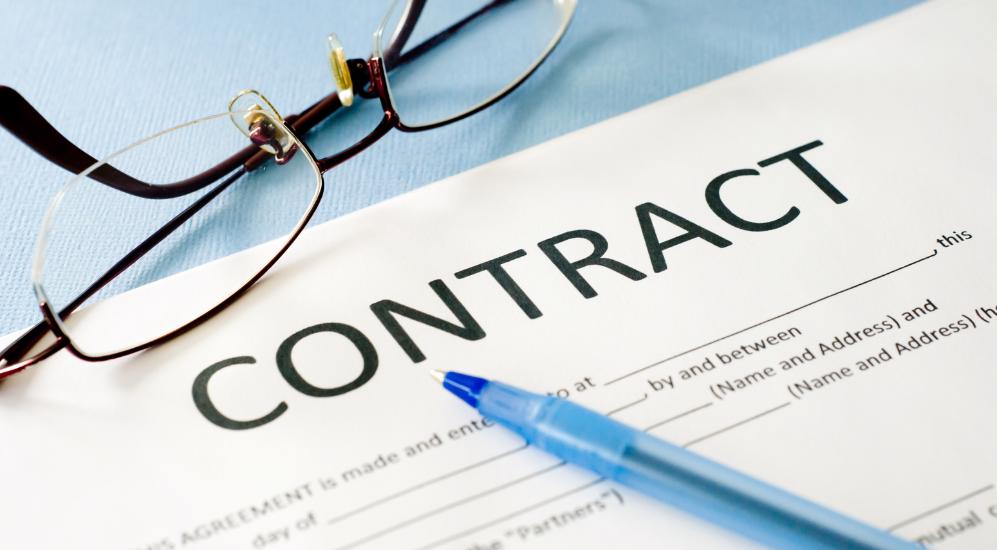How To Draft A Contract For Freelance Work In These 7 Simple Steps
As a freelancer, having a written contract with your clients is always a good idea. A well-written contract gives freelancers and clients the safety and security they need.
Freelancers and digital nomads aren't lawyers, so they can't be expected to know how to write contracts, It takes work. A well-written and used contract protects both the business owner and the client. Having a contract with your client is the first and most important step in managing your relationship with them. Contracts aren't just something to fall back on in case of a fight; they're also used to guide and shape the relationship itself.
This article will show you how to write a contract for freelance work in 7 easy steps.
It's important to use the full legal names of the people involved instead of using initials or fake names.
It is very important that the payment terms in your contract are clear. Payment information is about more than just how much money you'll get. It needs to say "what," "how," and "when."
How much needs to be paid? How will they pay for it? What kinds of payment are allowed, like PayPal, Payoneer, or gift cards? When will the money be sent? After a contract has been fulfilled? Or after a set of clearly defined goals?
Also, if possible, explain when clients can ask for changes and what will happen if they don't do it on time. This would protect you from clients who want more for less money and from endless rounds of changes that waste your time.
Final Words
A freelance contract is a must if you want to ensure your business will be around in the future. If you didn't think an agreement was important before, you know now how important it is. The following are useful resources to consult when you draft a complete and professional freelance contract.
If you still need to get a contract, it's time to get one. This will protect your freelance business from late payments, changes or expectations that are too high, legal battles, or anything else that could go wrong.
Freelancers and digital nomads aren't lawyers, so they can't be expected to know how to write contracts, It takes work. A well-written and used contract protects both the business owner and the client. Having a contract with your client is the first and most important step in managing your relationship with them. Contracts aren't just something to fall back on in case of a fight; they're also used to guide and shape the relationship itself.
This article will show you how to write a contract for freelance work in 7 easy steps.
Seven Essentials for a Freelance Agreement
Getting to Know the Parties (Names, Contact Information, and Dates)
This is the first part of a freelance contract most of the time. It should ideally say who the parties are and what their roles are. It should also say when the agreement was made and its purpose.It's important to use the full legal names of the people involved instead of using initials or fake names.
The scope of work and results
Most contract disagreements have nothing to do with money. Instead, they are about the scope of work (or deliverables). Your freelance agreement must make it clear from the start what you expect in terms of deliverables. As a freelancer, you should give as many details as possible about the service or product the client can expect from you.Payment Details
A survey by Independent Economy found that about 74% of freelancers don't get paid on time by their clients. Some people don't get paid for at least two months. Some people don't get paid at all because of problems that come up during the contract. Don't be a freelancer like that.It is very important that the payment terms in your contract are clear. Payment information is about more than just how much money you'll get. It needs to say "what," "how," and "when."
How much needs to be paid? How will they pay for it? What kinds of payment are allowed, like PayPal, Payoneer, or gift cards? When will the money be sent? After a contract has been fulfilled? Or after a set of clearly defined goals?
Number of revisions your price covers
Not all prototypes or first drafts are promising. This is why your freelance contract should have a clause for changes. If you don't set clear limits, your client may take advantage of the chance to make changes. In your revision clause, you should say how many changes are included in the project before you have to start charging extra for changes.Also, if possible, explain when clients can ask for changes and what will happen if they don't do it on time. This would protect you from clients who want more for less money and from endless rounds of changes that waste your time.
Termination terms
Contracts sometimes stay in place. Even if you're in it for the long haul, it's important to spell out how either party can leave or end the contract in a way that works for both of you. The terms for terminating a contract will help you finish it or stop it without breaking the contract and having to pay for it.E-Signatures
All parties have agreed upon the terms of the contract. Before starting the project, you and the client need to sign the contract. A signed agreement shows that both parties read, understood, and agreed to the contract's terms.Owning rights
It's important to say who owns the physical and non-physical parts of the project you're hired to do. This will help you avoid fights over ownership during or after a project is done. This is especially important when making original content for a client. You need to make it clear if they own any of the draft or the finished product. You should also find out when, if at all, the rights can be given to you.Final Words
A freelance contract is a must if you want to ensure your business will be around in the future. If you didn't think an agreement was important before, you know now how important it is. The following are useful resources to consult when you draft a complete and professional freelance contract.
- Create, manage and e-Sign docs with PandaDoc
- A basic freelance contract template from legaltemplates.net
- This customizable and simple contract template by Ryan Robins
- An easy to fill general contractor contract template by Jyssica Schwartz
- This flexible work for hire agreement template from Docsketch
If you still need to get a contract, it's time to get one. This will protect your freelance business from late payments, changes or expectations that are too high, legal battles, or anything else that could go wrong.
The best platform for remote work
Download our app and start today.
It's free!
It's free!




